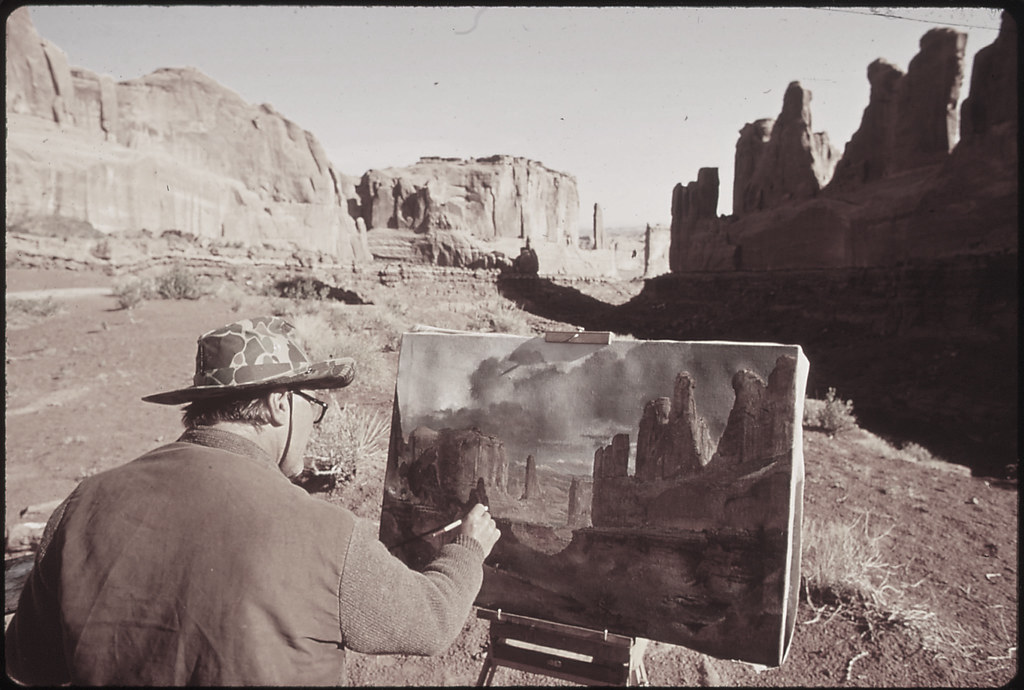Hannah Thomas is the founder and CEO of New Canvas Advising, an advising firm in the healthcare and life sciences industries. They came to A Brave New recently asking us to revamp their website with new and improved copy, a full redesign, and mechanisms to step up their lead generation game.
Thomas has been growing her business from the ground up after years of observing well-meaning consulting firms execute top-down engagements rather than take a whole team approach, which catalyzes lasting change and ensures contributors are valued for their participation. She works with companies primarily in the healthcare and life sciences industries to identify opportunities for business optimization and acceleration and create a tailored strategic plan for moving and evolving their business.
“You have to be secure in yourself, you have to be secure in your vision and where you're headed. You should also be able to say, ‘Well, the direction I was headed, perhaps I need to re-envision that.’”
— Hannah Thomas, New Canvas Advising
Working with New Canvas Advising (NCA) has been such an honor that we thought they were perfect to kick off our new series of featured client blog posts.
So, without further ado, let’s dive into Thomas’s story with New Canvas Advising.
Ash Hoffman (AH): Let’s start off simplY: what is New Canvas Advising and why did you start it?
Hannah Thomas (HT):
Much of the time, consulting firms work directly with the sponsor, which tends to be an executive champion. That means the staff who are actually doing the work are pretty much left out of the equation. It tends to be a one-sided conversation.
My intent for starting New Canvas Advising was to make it a whole team conversation — a whole team dynamic.
AH: what major benefit(s) do you provide for your clients?
HT: Put simply, I provide the full service.
For example, when looking for a marketing firm, I found that many websites can be misleading. They indicate that they offer several different services, and in some cases, products. Yet, when you have a conversation with them about some of these services they say, "Well, no, I don't do this,” or, “no, I don't do that."
My intent — no matter what size — is to provide that full service. In other words, I can connect to different people.
So if they have a specific challenge, then I can point them to somebody and prevent them from having to do the legwork. I can also white label and pull in from other marketplaces and actually provide that on-demand service. This way, the client never sees behind the curtain. They're not having to sweat to do anything. But they still get everything they asked for.
AH: so you're pulling in the connections wherever necessary to do whatever needs to be done in order to get things executed. Is that correct?
HT: Yes. As a client myself of other people, it is supremely frustrating when I am having to do 90% of the legwork to get 10% return, right? I don't want that to be the experience for other people.
If that means I have to put in a little more elbow grease for other people to experience full service, then that's what I'm prepared to do. That's what I've done as an internal advisor, and that's what I'm doing with NCA.
The level of effort matters not to me to ensure clients are completely and entirely helped. Not satisfied, but helped. There's a difference between satisfied and helped, and I strive for clients to get more out of an engagement than they imagined possible. Business transformation is incremental but not entirely plottable given the human dimension and multiplier effect of compounding changes.
AH: Let’s talk about marketing. What has been your process for generating business up until now?
HT: Generally referrals. Either they come to me directly or I reach out to them.
I am thinking about reaching out to a particular CEO. I've been a client of them for over 20 years at this point, and I know that they have pretty significant internal challenges. So I am planning on purposefully reaching out to their CEO and offering to help them with these internal challenges.
Let’s just say they already have the help they need on staff — in this case, an accountant. But even an accountant, who can be fairly rubricked and formulaic in terms of how they approach things, may look at this as a mathematical equation versus asking: what is our strategic approach?
AH: What are some challenges you've experienced while growing your business?
HT: It takes a very high touch, it's that one-to-one relationship and trust building. It's not based on quantity, it's based on quality, and it is typically me fostering client relationships.
The other one is being a female business owner. Last year was pretty punctuated for me, with pats on the head and the sort of sharp contrast between male business owners and female business owners. So that has been a barrier for me — to be taken seriously.
AH: How have you overcome these challenges?
HT: In some cases when it is clear the conversation isn't going to move forward, then I just respectfully bow out.
I'm not going to continue to put myself through an unnecessary ringer. People have biases. They have opinions, and they're entitled to them. That's what makes this world go round. I am in a business of persuasion, but I'm also in a business of helping and supporting.
Yet, oftentimes what I do is cajole. I need to hear the person and must understand their mental frame of reference. If they are stalwart in where they are, then it's a non-starter and I just walk away.
There is a fine line between being persuasive and changing people's minds with force, and that's not the business I'm in. I'm not an activist and I don't claim to be nor do I want to be. So, one needs to know the difference and be able to just walk away peacefully.
The other element, more than any external factor or outside interaction, is internal peace and a core that is okay with whatever happens. On a tactical note, having a core network I can go to and be authentic and transparent with is essential and say, "Look, things are not moving forward. I'm sort of at a stalemate here. Are there opportunities that you have? Can you connect me to your network? Do you have ideas and thoughts?"
I don't know it all and I don't claim to know it all, so it's really being secure enough and confident enough to express that.
AH: What has been your biggest learning point?
HT: Firstly, I would say marketing was something that was a point of learning for me. Not all marketing, frankly, is created equal and academic knowledge or practical knowledge about marketing is insufficient. So, really connecting with the team you're working with is paramount.
It’s similar to how you develop a patient-doctor relationship. There can be five doctors with comparable and equal academic training, but the relationship you establish with the physician is just as important as their academic training because you're going to listen and understand more clearly with a positive connection than passively hear with a negative one.
Secondly, know who you're partnering with. When you're starting a new business, understand your essential takeoff checklist like opening a checking account, secure a business license, etc. Those are very practical things to do.
Beyond the checklist, my learnings taught me to know who you are partnering with for key things a business needs to stay afloat such as outsourcing HR, marketing, or finance. The things people don't necessarily look at as pivotal truly are. Don't dismiss it.
Thirdly, have an advisory board. That's something I'm in the process of standing up. Lean on people, don't be afraid to reach out and say, "I don't know."
I've never been afraid to say I don't know. But do it in a public sense. It's not a fearsome thing to ask for help and to reach out to people you don't know and truly be authentic.
You have to be secure in yourself. You have to be secure in your vision and where you're headed. You should also be able to say, "Well, the direction I was headed, perhaps I need to re-envision that.”
AH: What piece of advice have you been giving lately?
During this period of time, I would say to be grateful.
For example, I have a brand new home and I can say I'm grateful for my home. But on the flip side of that, sort of that negative voice in my head, "Well, what if I can't make the mortgage payments and I lose my home," right?
So we can say, "Oh, be grateful," but then we can also allow that sense of fear and anxiety to crouch in and destroy that moment of gratitude. Don't do that. In the good times and in the difficult times, still maintain your sense of gratitude and thanksgiving.
Gratitude for family, for friends, that I can still talk to you on the phone. We still have a moment of connectedness.
Don’t miss out, get Brave News now
Join the ABN community and be the first to learn about trends in inbound marketing, branding, and web design.






